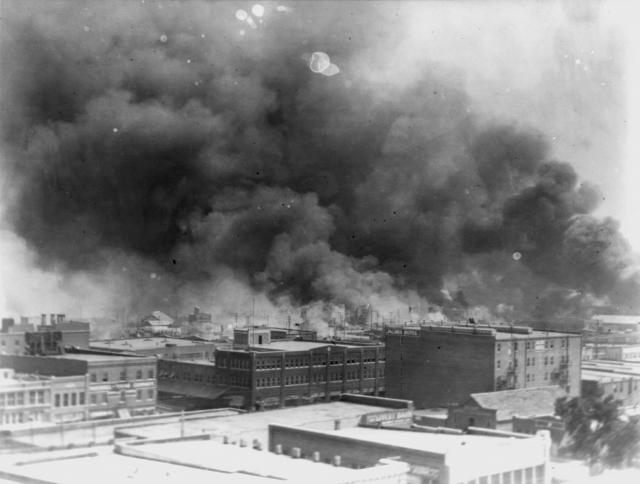Judge dismisses lawsuit seeking reparations for the 1921 Tulsa Race Massacre

Views (109)

An Oklahoma judge has thrown out a lawsuit seeking reparations for the 1921 Tulsa Race Massacre, dashing an effort to obtain some measure of legal justice by survivors of the deadly racist rampage. Judge Caroline Wall on Friday dismissed with prejudice the lawsuit trying to force the city and others to make recompense for the destruction of the once-thriving Black district known as Greenwood. Tulsa Mayor G.T. Bynum said in a statement that the city has yet to receive the full court order.
The order comes in a case by three survivors of the attack, who are all now over 100 years old and sued in 2020 with the hope of seeing what their attorney called "justice in their lifetime.”
Tulsa Mayor G.T. Bynum said in a statement that the city has yet to receive the full court order. "The city remains committed to finding the graves of 1921 Tulsa Race Massacre victims, fostering economic investment in the Greenwood District, educating future generations about the worst event in our community’s history, and building a city where every person has an equal opportunity for a great life,” he said.
A lawyer for the survivors — Lessie Benningfield Randle, Viola Fletcher and Hughes Van Ellis — did not say Sunday whether they plan to appeal. But a group supporting the lawsuit suggested they are likely to challenge Wall's decision.
“Judge Wall effectively condemned the three living Tulsa Race Massacre Survivors to languish — genuinely to death — on Oklahoma’s appellate docket,” the group, Justice for Greenwood, said in a statement. “There is no semblance of justice or access to justice here.”
Local judicial elections in Oklahoma are technically nonpartisan, but Wall has described herself as a “Constitutional Conservative” in past campaign questionnaires.
The lawsuit was brought under Oklahoma’s public nuisance law, saying the actions of the white mob that killed hundreds of Black residents and destroyed what had been the nation’s most prosperous Black business district continue to affect the city today.
The city and insurance companies never compensated victims for their losses, and the massacre ultimately resulted in racial and economic disparities that still exist today, the lawsuit argued. It sought a detailed accounting of the property and wealth lost or stolen in the massacre, the construction of a hospital in north Tulsa and the creation of a victims compensation fund, among other things.
A Chamber of Commerce attorney previously said that the massacre was horrible, but the nuisance it caused was not ongoing.
___
This story has been updated to reflect that Fletcher's memoir has already been published, rather than being published next month, and will become widely available for purchase in August.
___
Bleiberg reported from Dallas and Associated Press staff writer Michael Biesecker contributed reporting from Washington.
0 Likes
